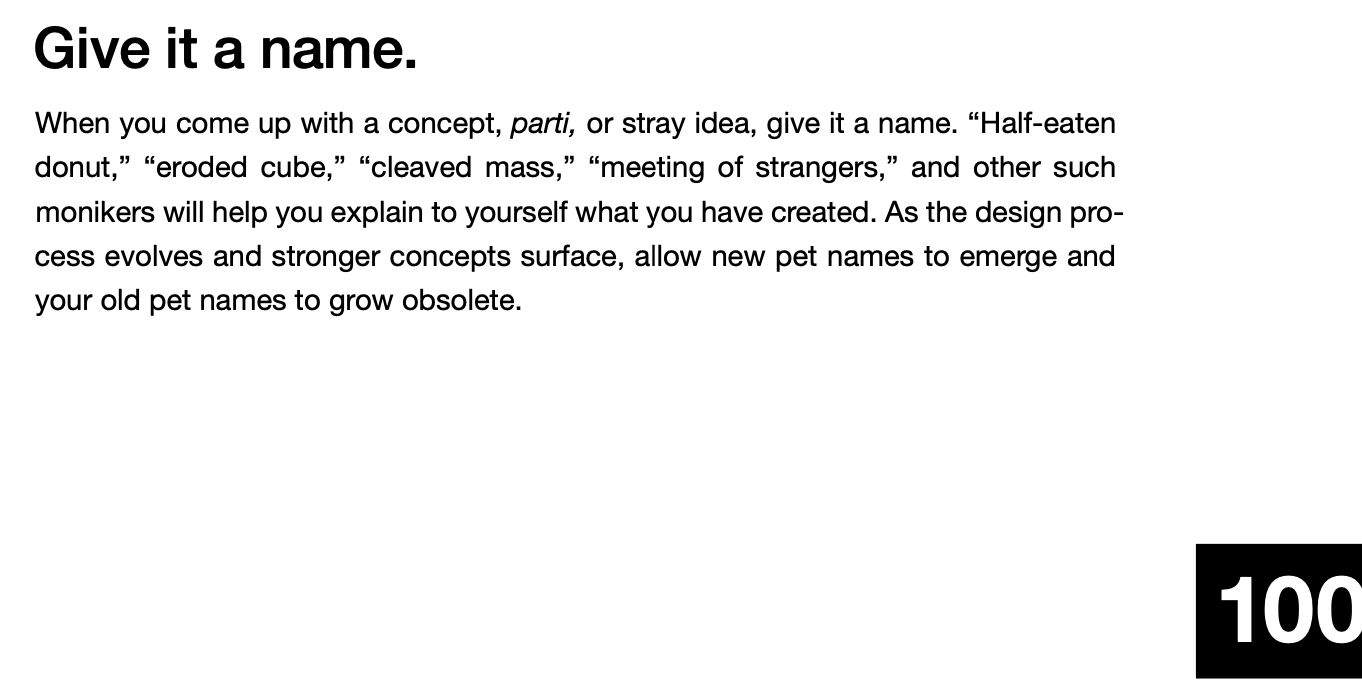Andyʼs working notes
About these notesEvergreen note titles are like APIs
When Evergreen notes are factored and titled well, those titles become an abstraction for the note itself. The entire note’s ideas can then be referenced using that handle (see Concept handles, after Alexander). In fact, this property itself functions as a kind of litmus: as you develops ideas in notes over time and improve the “APIs,” you’ll be able to write individual notes which abstract over increasingly large subtrees (e.g. Enacted experiences have incredible potential as a mass medium, Evergreen note-writing as fundamental unit of knowledge work).
Some effective note “API design” techniques: separation of concerns (Evergreen notes should be atomic), sharp titles (Prefer note titles with complete phrases to sharpen claims), and positive framings (Prefer positive note titles to promote systematic theory).
Related: Grounded claims, after Qian et al
References
Frederick, M. (2007). 101 things I learned in architecture school. MIT Press.
Conversation with Michael Nielsen, 2019-12-16
Concept handles, after Alexander
A “concept handle” is a memorable noun phrase representing a complex, often abstract topic. For example: “prisoner’s dilemma,” “Overton window,” “belief in belief,” etc. In my own writing, examples include Enabling environment, Enacted experience, etc. The “concept handle” is a concept handle for itself, coined by Scott Alexander.
Successful concept handles can really amplify a vague idea which many people sort of understand but can’t point to and talk about. If you give that vague notion a crisp, catchy name, you can unlock a lot of conversation and reflection. Per Alexander:
I’m not too likely to discover some entirely new social phenomenon that nobody’s ever thought about before. But there are a lot of things people have vague nebulous ideas about that they can’t quite put into words. Changing those into crystal-clear ideas they can manipulate and discuss with others is a big deal.
If you figure out something interesting and very briefly cram it into somebody else’s head, don’t waste that! Give it a nice concept-handle so that they’ll remember it and be able to use it to solve other problems!
One way to think about concept handles is as “APIs for concepts.” In this sense, the idea connects to my thinking about Evergreen note titles are like APIs.
Q. What’s an example of a concept handle?
A. (prisoner’s dilemma, enacted experience, etc…)
Q. What’s the networked-intelligence reason why concept handles are important?
A. They let people coordinate discussion around an idea that was previously nebulous.